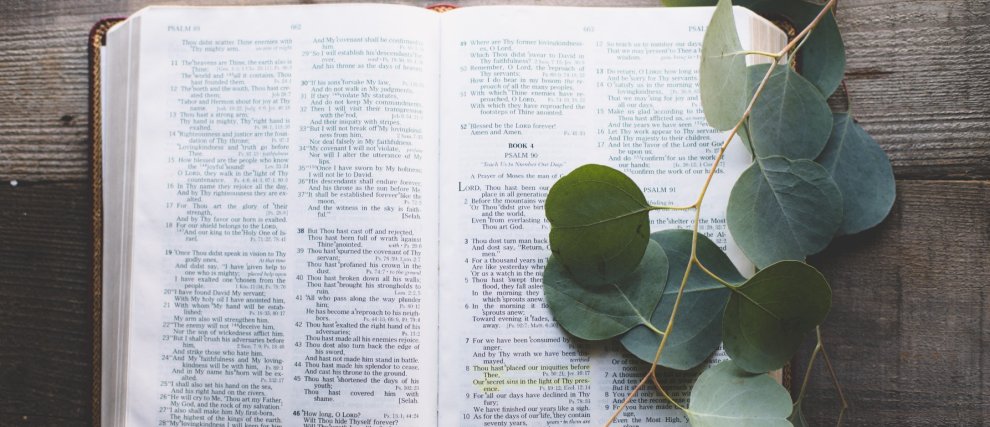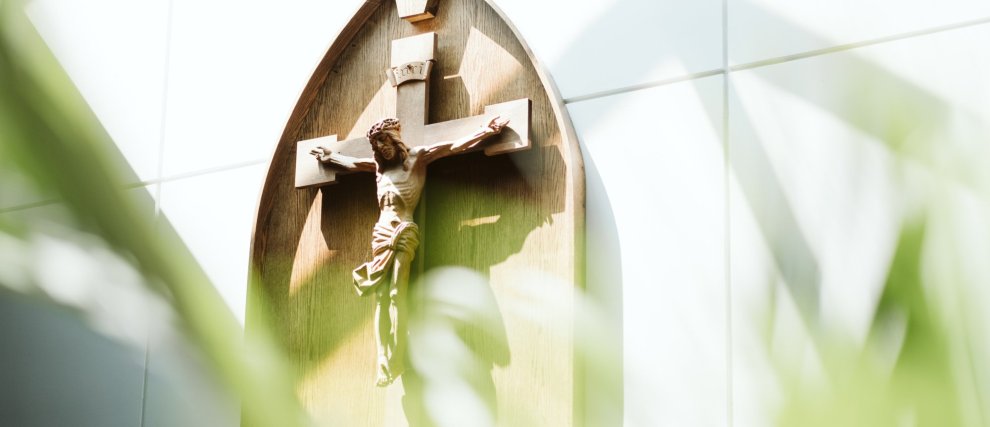What is a Spiritual Retreat?
A Catholic spiritual retreat is a time when a believer, or a non-believer, aims to get away from their daily activities to discover or renew the experience of an encounter with God, to reflect on the meaning of life, to deepen questions about the faith with the help of teachings, or simply to rest. "Man is made to live in communion with God in whom he finds happiness" - number 45 of the Catechism of the Catholic Church. A spiritual retreat is precisely a means offered by the Church to develop the contemplative dimension of our lives and our union with God. This involves prayer, and the silent setting offered in a spiritual retreat is generally conducive to developing and renewing our personal encounter with God.
In this article by Hozana, let's take a look at the main questions and answers around spiritual retreats. At the end of this reading, we invite you to discover other great questions about christian life.
What is a Spiritual Retreat?
The agenda of a retreat varies depending on whether it's a retreat with or without teaching. The majority of retreats include teaching (preached retreats) and often take place in silence. They can include two to three teaching times per day: normally, a lesson never exceeds 40 to 45 minutes. Sometimes at the end of each teaching, a sheet with a text or questions is given, but it depends on each preacher and how they operate. The preacher is often a priest or a clergyman, but can also be a layman. In addition to the teachings, the rest of the retreat format generally alternates between daily mass, liturgical services, times of prayer, solitude and rest (some retreats take the opportunity to go for a walk or run, for example), and meals.
Generally, the preacher is available to participants outside of teaching time. Outside of this framework, a preached retreat does not necessarily reserve a daily appointment with a spiritual guide or a listener.
A participant may also choose a retreat that is not preached. They will then benefit from a supportive environment for prayer, an encounter with God, the Eucharist and services, and the opportunity to meet someone.
How long is a preached retreat?
The most common preached retreats are those lasting 2 to 3 days, 5 days, and those lasting 7-10 days. There are also 30-day retreats, such as the spiritual exercises of Saint Ignatius of Loyola. However, although there is a teaching every day, this type of retreat does not fall into the category of preached retreats.
The shortest preached retreats, those that last 2 to 3 days, usually take place over the weekend. For example, a number of them start on Friday evening and end on Sunday afternoon.
What subjects are discussed at preached retreats?
Here are some examples of subjects of preached retreats:
· Choosing life
· The Beatitudes
· Spiritual battles
· Who will make us see happiness?
· Growing up in freedom
· If you knew the gift of God
· Forgiveness
· Holiness
· The Virgin Mary
· and more!
Why a Spiritual Retreat?
There are different criteria that explain the main motivations of people wishing to take a retreat, such as:
· Learning
· Discernment, that is, reflection on a specific issue, aiming to make a decision
· To make or renew the experience of God
· To rekindle the fire of zeal again
· To reflect on your life
· To rest
Article to read: We have written a specific article that explains each of these motivations above in a very concrete way, explaining why you may wish to take a retreat. So, what are you waiting for? Read our article on why to do a spiritual retreat.
How to Choose a Spiritual Retreat?
There are different criteria for choosing your retreat, such as:
- The type of retreat
- Silent or spoken
- Your spirituality
- Do you want to retreat alone? With your partner? Or in a group?
- Your life circumstances: are you single? Married? A priest? A monk or nun?
- The format of the retreat
- The subject
- The preacher
- The duration
- Your budget
- Availability
Article to read: We have also written an article that explains each criterion for choosing your retreat in a very concise way. Check out our article.
Where to take a Spiritual Retreat?
There are generally several categories of places for a spiritual retreat:
· Abbeys and monasteries
· The Homes of Charity
· Spiritual retreat centers
· Other places belonging to the Dioceses
· From home remotely: there are also 100% online retreats that allow you to enjoy a retreat online from the comfort of your own home. Recently, for example, there have been more and more MOOCs (Massive Open Online Courses).
Good to know: You can find the most appropriate retreat by contacting your diocese directly to find out retreat locations, or by searching on the Internet.
What do spiritual retreats cost?
The price of the retreat will vary according to several parameters, such as:
The duration:
· Expect a cost of between 100 and 200 dollars for a weekend retreat.
· For a one-week retreat, count on between 300 and 400 dollars. The price will be influenced by the presence (or not) of a preacher and the cost of services offered, such as catering services.
· A 30-day retreat, like the spiritual exercises of Saint Ignatius of Loyola, will cost around 1,300 dollars. The duration, the services, and the support justify this price.
Room and board: costs related to water, electricity, cleaning, and maintenance must be accounted for.
Meals: the price of the retreat is influenced by the price of food, the salary of the cook and/or the price of the catering company, if applicable.
The preacher and/or external speakers: the Conference of Bishops has set minimum rates for preachers in certain countries. Don’t forget to add the preparation time, which is done beforehand. Preachers can sometimes take a year to prepare for a one-week retreat.
Other operating costs: the price of the retreat is also influenced by other operational costs, whether fixed or variable costs.
The personal situation of the participant: if the retreatant is a student, unemployed, or has a low income, it is customary for the person who cannot pay the suggested price of the retreat not to be prevented from participating. In this case, it is certainly better to talk to the host beforehand to reach an agreement. Speaking of arrangements, there are, for example, ways to pay less for a retreat, such as doing a few hours of volunteer work for the center: working at the abbey's store if there is one, some small manual work, etc. In addition, we sometimes hear about a “solidarity price,” where wealthier participants can be asked to give more to assist those who cannot pay the price set by the host. Finally, to reduce the price of the retreat, think of traveling with public transport if possible (train or bus) or by sharing gas costs through carpooling.
And what are the differences between a retreat, a session, a recollection, a spiritual stop?
Spiritual retreats, recollections, sessions, and spiritual stops are all terms that are quite similar, but which can have some nuances.
What is the difference between a retreat and a session?
Unlike a session, a retreat is usually done in silence, whether with the other participants, or during meals. A spiritual reading or music can accompany the meal for those taking a retreat. In addition, during this time, a personal support or a meeting time with the preacher may be offered. On some retreats, such as the spiritual exercises of Saint Ignatius of Loyola, or others related to a discernment or a choice in life, there is always a spiritual accompaniment for each participant. Finally, unlike retreats, during a session, there is usually no individual spiritual accompaniment offered.
Recollections and spiritual stops: what are the differences?
Recollections and spiritual stops can be synonymous. In both cases, they usually last a fairly short time. It is rare for a recollection to last more than two days: usually, it lasts one or two days. A spiritual stop often lasts a day. It can include the reading of the word of God, some short teachings, times of prayer, mass, and times of fraternity.
Some parishes, at certain times of the liturgical calendar, will offer a recollection or a spiritual stop.
Discover online retreats with Hozana
Hozana offers retreats and novenas online. For example:
· This
· This
· And so many more!

